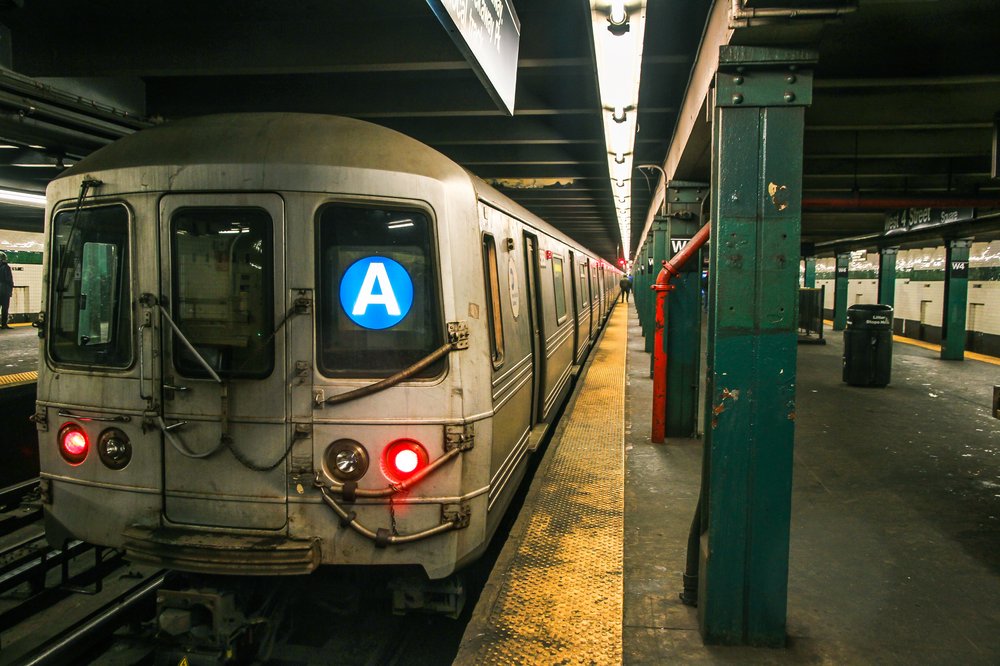MTA could have a lower fare hike and 5 free bus routes under proposed state budget
April 28, 2023, 5:15 p.m.
The authority will likely not have to hike rates as much as they thought.

The MTA may be able to keep single subway and bus fares under $3 this year — and potentially establish a free bus line in each borough — if Gov. Kathy Hochul’s preliminary budget makes it through the gauntlet of legislative approval.
The tentative budget agreement released Thursday night would keep fare increases to 4% rather than the 5.5% the MTA anticipated needing this year to balance its budget. The governor had halted the MTA’s biennial fare hike program during the pandemic and during her re-election year. But this year, the MTA anticipated bringing back regular fare increases.
Hochul’s budget also includes a pilot to examine the impact of providing a free bus route in each of the five boroughs. And it will stave off the need for cuts to service or jobs.
Part of the challenge of the state budget was finding $600 million to close the MTA’s budget gap this year, and more than $1 billion annually in the coming years. One controversial solution for providing more recurring revenue for the transit agency was increasing the payroll mobility tax on businesses in the region that make more than $312,500 each quarter.
It’s currently capped at 0.34% for the regions served by the MTA.
Under Hochul’s tentative budget agreement that would increase to .6%, but only to New York City businesses. This comes after complaints from Hudson Valley and Long Island lawmakers about subsidizing the subways. Still, Hochul estimates the increase could bring in $1.1 billion a year.
“It was essential that the budget include a funding plan for the MTA, which was accomplished, but disappointing that a disproportionate burden for funding the regional transit system was placed on employers in the five boroughs, letting the suburbs off the hook,” Kathryn Wylde, the president and CEO of the Partnership for New York City, a nonprofit that works with the city’s business community. “We just opened a $12 billion new line into Grand Central for the benefit of Long Island commuters, after all, which illustrates that the suburbs are certainly not deprived when it comes to MTA benefits.”
MTA Chair Janno Leiber defended the governor’s move and cited the City Ticket, a $5 ticket for commuters who want to use the Long Island Rail Road in New York City.
“The commuter railroads are really becoming more and more beneficial for New York City people,” Lieber said. “So, I don't like this old separation between commuter railroads and subways, like its city versus suburb. The commuter railroads are being used by New Yorkers more and more.”
Still, Nicole Gelinas with the right-leaning Manhattan Institute agrees with Lieber.
“I think it’s good that it won’t affect the suburbs. The reality is that having a tax that assumes that service in the Hudson Valley, Long Island, for day-to-day life is comparable to service in NYC is wrong-headed,” Gelinas wrote in an email.
But she warned that raising taxes is probably fiscally unwise if the MTA doesn’t fix its perennial budget problems.
“This is not a time for a new tax on mobile jobs,” she said. “Absent any deep-seated MTA reforms, it would be better to just take a little of the state surplus – all the money Hochul is using to increase education – and tide the MTA over for another year.” For its part, the MTA has agreed to find $400 million in recurring savings each year, but it hasn’t outlined exactly how it will do that.
Other details in the proposed budget include $300 million in one-time state aid for the transit agency. And rather than ask the city to contribute $500 million, which Mayor Eric Adams rejected, the state is asking the city to pay $165 million to cover the cost of paratransit services.
Adams didn’t comment specifically on the reduced request, other than to say in a statement that the budget “reflected some major victories for working New Yorkers,” including “reducing the city’s financial burden in supporting the MTA.”
Lieber said if Hochul’s budget passes as proposed, it would put the MTA on stable ground, for now.
“Based on the financial plan that we put out, the actions taken by the Legislature and the governor will balance the MTAs budget for the next four years,” Lieber said Friday. “That's a huge milestone and success for riders.”
NY has a tentative state budget deal. Here’s what’s in and what’s out.